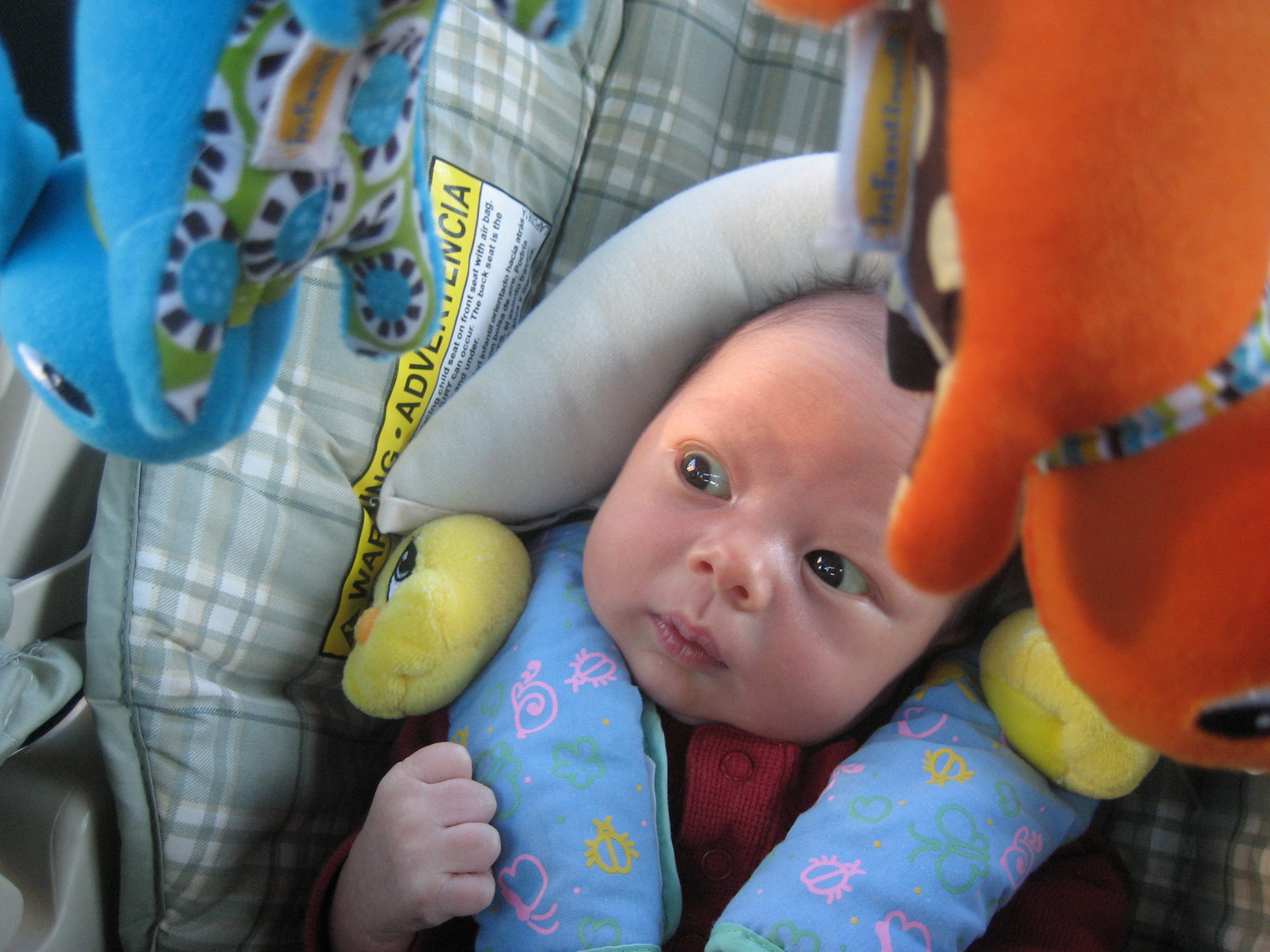Rotavirus Vaccine for My Baby
|

My son Eli is three months old (and he's darn cute, if you don't mind me saying so!).
A month ago, Eli went to the pediatrician's office for his two-month check up, and, in addition to gathering his height and weight measurements, the doc gave Eli his first set of vaccinations. Aside from the fact that I work at PATH and roughly a third of PATH's annual budget is dedicated to vaccines and vaccine delivery, I believe in vaccinations. So I was thrilled to learn that with my baby's first set of vaccinations, he's well on his way toward being protected against hepatitis B, polio, pneumococcal disease, diptheria, tetanus & pertussis, Hib, and rotavirus. I was especially happy to learn that rotavirus vaccine is now a standard oral vaccine given to infants, because this wasn't the case just three years ago.
I know this because a girlfriend's son, who is now 3 years old, was not vaccinated against rotavirus as part of a recommended set and spent a recent Easter in a Malaysian hospital, receiving a rehydration solution through an IV drip. They had moved to Malaysia only a couple of weeks prior, when their little one became quite sick. He started vomiting and had terrible diarrhea—this went on for several days. Nothing would stay down. Nothing would stay in.
When they finally went to the hospital, he was immediately put on an IV drip. They later learned that he had rotavirus. He had never been offered the vaccine. Today, the World Health Organization recommends that rotavirus vaccine be introduced in all national immunization programs. The US introduced an oral rotavirus vaccine in 2006, but the “Vaccine Information Statement” I received last month at the time of Eli's vaccination was dated September 18, 2008. Administrative oversight could have been the difference that left rotavirus vaccine off my friend's kid's schedule.
“I'm not sure why we didn't know about it. We just got the vaccines that we were recommended. Not even the travel doctor recommended the rotavirus one, which I think is surprising in retrospect.”
Despite whether it was administrative oversight or some other unusual circumstance, we're generally very lucky in the United States. Occurrences like my friend's are not the norm, and most of our children are offered routine vaccinations against rotavirus. Unfortunately, this isn't the case in much of the world, and oftentimes these are the places where a vaccine would do the most good. Not all governments have the funding to offer rotavirus vaccine. There's a general lack of awareness that this easily administered oral vaccine can prevent diarrhea, hospitalization, and even death. It's scary to think that children are suffering in the developing world from an entirely preventable disease. But isn't that part of the good fight that PATH is tackling every day?
A happy end to my friend's story is that, after a couple of days in the hospital on an IV, her little boy woke up happy and healthy. And now the family knows and is spreading the word about rotavirus vaccine.
“40% of hospitalizations across the world for small children are related to rotavirus…And unless your kid never puts his or her hands in gross places between hand-washings, it's hard to prevent them from being exposed.”
- Marissa Kaiser is a Communications Specialist for the PATH Safe Water Project and a new mom














